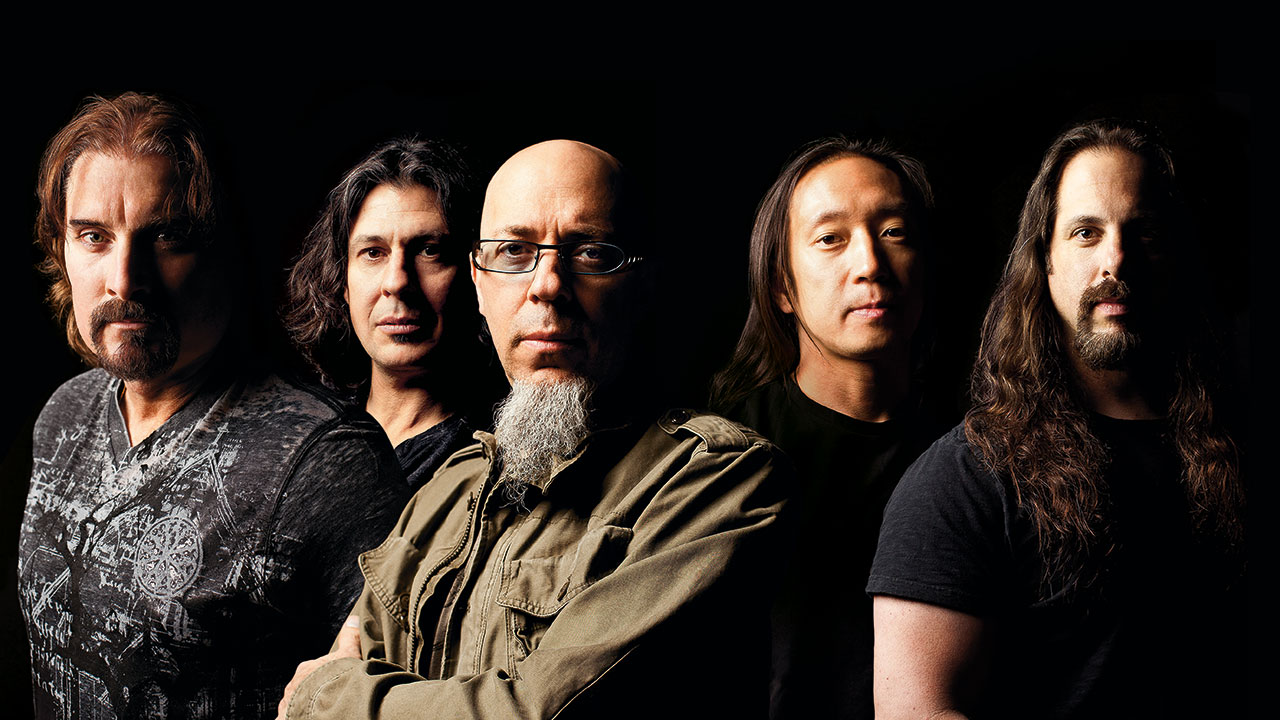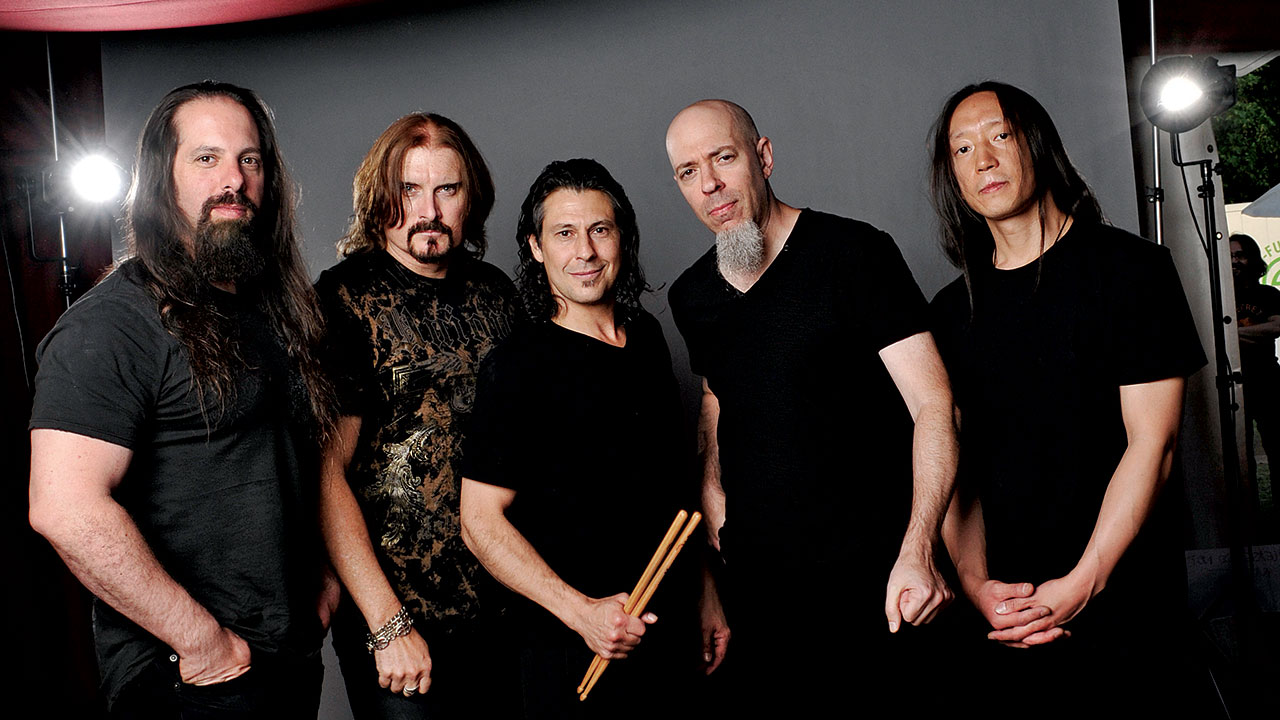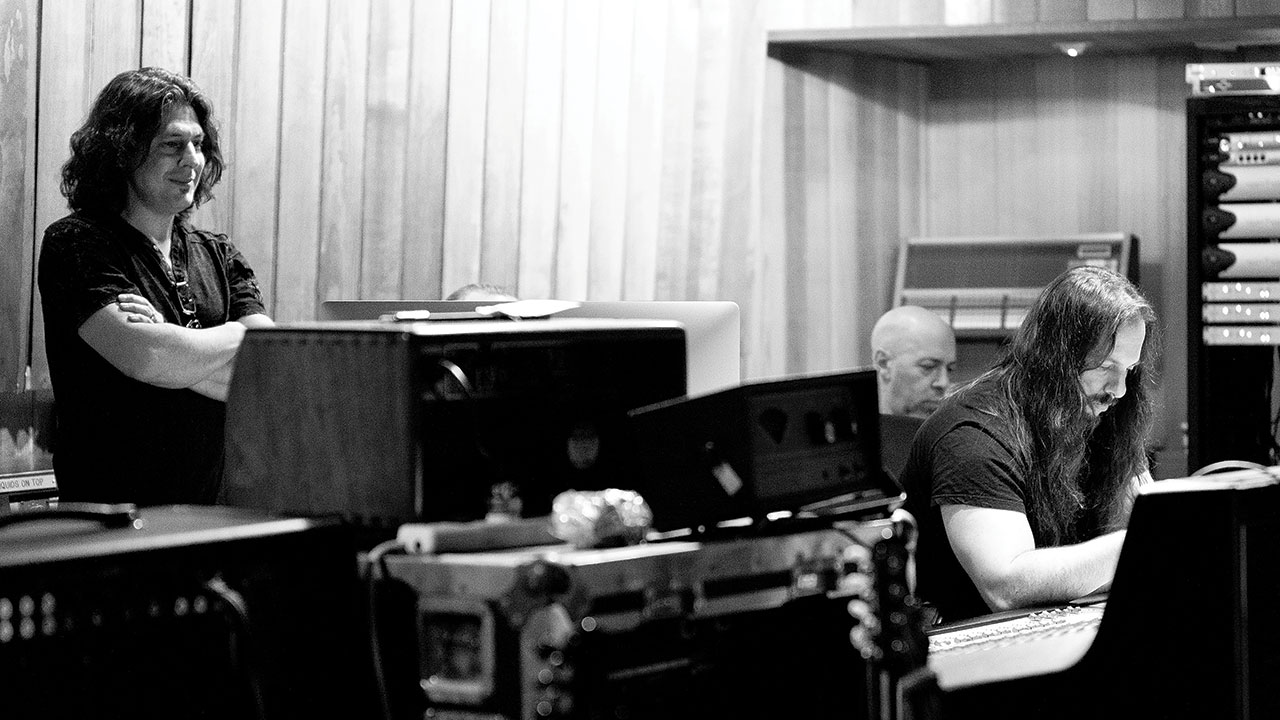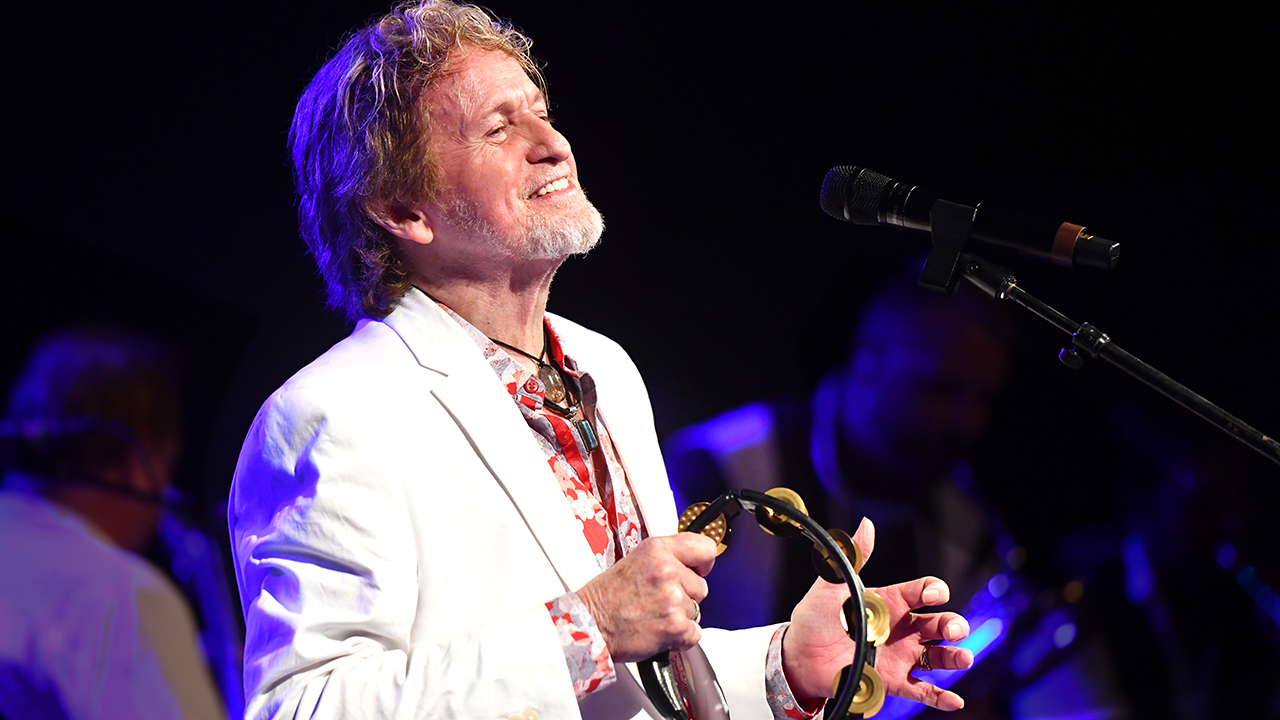“Obviously we will have people who love Mike Portnoy, who won’t be able to accept the change and will probably still be bitter." How Dream Theater survived the loss of Mike Portnoy and made A Dramatic Turn Of Events
US prog metallers Dream Theater faced the unthinkable in 2010 when de facto band leader and drummer Mike Portnoy left the band. They returned a year later with a brand new drummer and album

Select the newsletters you’d like to receive. Then, add your email to sign up.
You are now subscribed
Your newsletter sign-up was successful
Want to add more newsletters?

Every Friday
Louder
Louder’s weekly newsletter is jam-packed with the team’s personal highlights from the last seven days, including features, breaking news, reviews and tons of juicy exclusives from the world of alternative music.

Every Friday
Classic Rock
The Classic Rock newsletter is an essential read for the discerning rock fan. Every week we bring you the news, reviews and the very best features and interviews from our extensive archive. Written by rock fans for rock fans.

Every Friday
Metal Hammer
For the last four decades Metal Hammer has been the world’s greatest metal magazine. Created by metalheads for metalheads, ‘Hammer takes you behind the scenes, closer to the action, and nearer to the bands that you love the most.

Every Friday
Prog
The Prog newsletter brings you the very best of Prog Magazine and our website, every Friday. We'll deliver you the very latest news from the Prog universe, informative features and archive material from Prog’s impressive vault.
There can’t be many progressive drummers who’ve quit a band and caused quite so much of a stir as when Mike Portnoy left Dream Theater last year. Except, perhaps, for Cozy Powell replacing Carl Palmer in ELP or Bill Bruford’s exit from Yes, drummers are ostensibly seen as replaceable assets, and the ripples caused by Portnoy’s decision were decidedly rare. Dream Theater’s subsequent resolution to rebuff him when he wanted to rejoin the band a few weeks later, coupled with the quest to find a replacement, the eventual hiring of Mike Mangini and the legal dramas that always tend to follow acrimonious splits, would from the perspective of an outsider seem to have made this a particularly stressful year for the band. Yet on the eve of the release of their new album, the aptly named A Dramatic Turn Of Events, frontman James LaBrie reveals that it’s been far less of an upheaval than you might imagine.
“To be honest with you, we knew we were swimming into uncharted waters,” he reflects calmly. “The legal situation was definitely going on when we were in the studio and that can be a distraction, but you’ve got to put everything in perspective. That’s something that you can’t ignore and we knew it was going to come with the territory. We all realised that this was going to be an exceptionally important album for us, and that there would be scepticism that would surround its whole unveiling. So to be honest with you, I don’t think it was what most people would interpret as being a stressful period. It was just us accepting our situation and that we had to move forward and handle it with grace.”

With Mike Portnoy’s departure, the reconvening members of Dream Theater discovered that the in-studio dynamic had considerably changed. One of Portnoy’s pivotal roles had been to adopt the part of musical director, vociferously guiding the band in terms of which riffs to adopt and which to discard, as well as forming the ‘bigger picture’ of an album’s direction.
“Even though Mike was very involved as a director, it’s really about John Petrucci and I, with some help from the others, writing the music,” explains keyboardist Jordan Rudess. “The biggest change that happened with this album is that we put even more energy into making sure that everything that we wrote was as fantastic as we could make it. We knew that things are going to be under a microscope.
“Another thing is that this album has seen the freeing of the spirit of [bassist] John Myung. He’s been more involved in this album than he has been in a while. To the point where he is writing some lyrics and he had a lot of riff ideas and was very excited about going forward with this new situation. He really presented a lot of energy, whereas in past albums he was just more in his quiet world doing his thing.”
LaBrie suggests that Portnoy’s absence also ensured that the atmosphere was far more conducive to writing than it had been previously, something that in turn allowed the likes of the previously withdrawn and somewhat reclusive Myung to flourish.
“We knew without a doubt that the whole process was going to be different without our drummer from previous years being there,” he explains. “You could see that the atmosphere was much more calm and relaxed and far more interactive. I think because of that, it really allowed everyone to be able to assert themselves throughout the entire process. And as you’re talking about John Myung, absolutely, he stepped so far up and on to the plate that it was unbelievable. He was just being himself, involved and dedicated, and the same goes for everyone.”
Sign up below to get the latest from Prog, plus exclusive special offers, direct to your inbox!
“Well, for another thing, the studio was a whole lot quieter, as we didn’t have any drums in the room when we were writing,” adds Rudess with a laugh. “For me as a composer, having that space really helps. I mean it’s kind of fun to write when there's a drummer in the room as they can certainly add something, but I prefer to write in a peaceful place. There was an atmosphere of patience surrounding the writing of this album; we’d give each other the time and space… I think it was productive.”

Certainly the band are more than aware that this album needed to match – if not surpass – their finest releases over the past 25 years. If the album fell short, critics (and some fans) would be lining up to castigate them for choosing to continue without Portnoy. Fortunately, A Dramatic Turn Of Events is one of the most alluring albums they’ve ever written, containing all of the elements that Dream Theater fans demand. Yet Rudess is pragmatic, and more than aware that no matter how good the album is, there will be people who refuse to accept anyone behind the drum kit other than Portnoy.
“Obviously we will have people who love Mike Portnoy, who won’t be able to accept the change, won’t be able to just listen to the music and will probably still be bitter,” he admits. “I guess that’s just one of the things that we’ll have to accept. That’s just real life. Mangini could be God’s gift to drumming and it wouldn’t matter. People will still miss Mike, which is understandable. I mean, with his personality he was such a big part of our situation and yeah, I’m going to miss him too. But musically speaking, we’re all happy, the music lives on and I’m very pleased with how this new album turned out.”
“We knew this was going to be an album that was going to be scrutinised more than any other previous album, just because we were bringing in a new drummer and replacing somebody who was very much in contact with our fans worldwide,” says LaBrie. “For the most part, it was a matter of just making sure that it would be a classic Dream Theater album. It doesn’t necessarily have to be the best album in the world for us, although we are extremely proud of it and think it is everything that a Dream Theater album should be and more. But it was a matter of knowing that we had to sit down and really think about who and what we have been up until now and then to take it even further. And to touch upon all those classic elements but presenting it so that the progressive side of Dream Theater and the heavy side are presented in a more complementary fashion.
“I think that probably what was missing on some of our albums is that one element – mostly the heavy element – overshadowed the more progressive element. The beauty of this album is that it really is being presented in a classic Dream Theater sense. Everything is in its rightful place.”
There’s a huge irony, though, in the fact that Portnoy’s primary reason for wanting to place the band on hiatus was that he perceived them as becoming jaded and needing time apart to refresh themselves in order to return stronger. Undoubtedly, his departure caused the band the reassess themselves before recording an album as fresh as A Dramatic Turn Of Events. It’s definitely a fact that’s not lost on LaBrie.
“Oh yes, it’s really ironic and I’ll tell you I’m one to believe that the universe has a way of orchestrating things to happen for a reason,” he says vehemently. “Ultimately, I think that the universe wants to give us back positive energy and vibes, and that’s exactly what’s happened here. A lot of people are saying that you can really feel and see the spirit on stage every night now. I think it’s been missing for quite some time, though we did a good job of camouflaging it.”

Such an admission would imply that the camaraderie that existed in Dream Theater’s early days had been deteriorating for some time, with sheer professionalism getting them through. So can LaBrie pinpoint a time when the fun of touring started to disappear?
“Oh my God, I don’t know,” he muses, before tailing off into thought as if unsure as to whether honesty is the wisest option. “Well, I think that it’s been a little challenging in certain aspects within the band, off and on, for the past 12 years – maybe even more. You just keep finding ways to keep things in check or worse, you start to accept it. You think that maybe this is the only way that it can exist and it’s not until you’re flipped upside down, and somebody gives you a fresh perspective, you even see it in that light.
“I think that if anything, what’s happened to us in the last year has proved to be a good thing. The bottom line is that we really love what we’re doing and this has only enhanced an appreciation for what we are fortunate enough to be doing in our lives.”
This article originally appeared in issue 19 of Prog Magazine.
